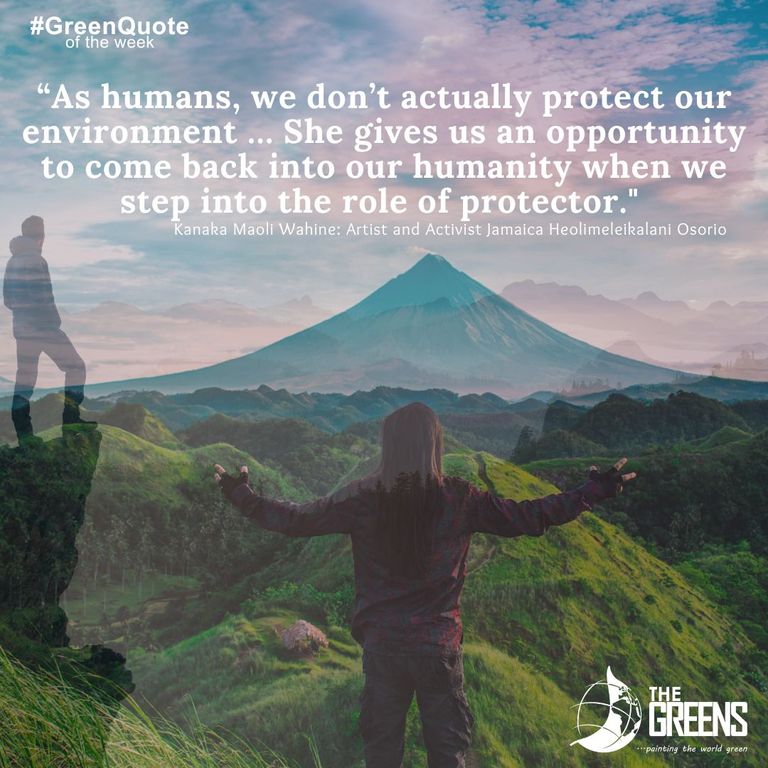
“As humans, we don’t actually protect our environment … She gives us an opportunity to come back into our humanity when we step into the role of protector."
The key point here is that the environment does not need our protection in the traditional sense. Rather, by taking on the role of protector, we are actually the ones who benefit and are able to "come back into our humanity." The act of protecting and caring for the natural world is not simply an altruistic path, but one that is fundamentally healing for the human spirit.
It challenges the notion that humans are separate from or superior to the environment, presenting the idea that the environment is something that "gives us an opportunity" to reconnect with our deepest human qualities - our compassion, our sense of responsibility, our longing for the natural world.
Environmental protection is not just about protecting the physical world, but about reclaiming our own humanity. When we step into the role of protector, we are not just saving the forests, the watersheds, and our nonhuman neighbors - we are saving ourselves from the disconnection and spiritual malaise that can come from seeing ourselves as separate from nature. The boundary between human and nonhuman is dissolved, and our fate is inextricably linked. By embracing this interconnectedness, we open ourselves up to a "joy-in-grief and grief-in-joy" - an emotional and spiritual reckoning with the beauty and fragility of the world we inhabit.
Reflection by Madalina Gilca
#Environment #Earth #Humanity #Spirituality #GreenQuote #TheGreens #Conservation #EnvironmentalEducation #Quote